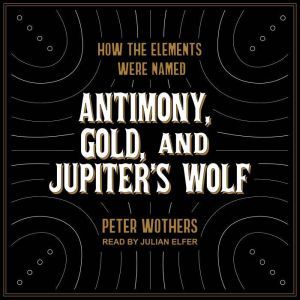

Antimony, Gold, and Jupiter's Wolf
How the elements were named
Author: Peter Wothers
Narrator: Julian Elfer
Unabridged: 9 hr 18 min
Format: Digital Audiobook Download
Publisher: Tantor Media
Published: 07/28/2020
Categories: Nonfiction, Science, Chemistry
Synopsis
Here, Peter Wothers explores the fascinating and often surprising stories behind how the chemical elements received their names. Delving back in time to explore the history and gradual development of chemistry, he sifts through medieval manuscripts for clues to the stories surrounding the discovery of the elements, showing how they were first encountered or created, and how they were used in everyday lives. While some of the origins of the names were controversial (and indeed incorrect—some saying, for instance, that oxygen might be literally taken to mean 'the son of a vinegar merchant'), they have nonetheless influenced language used around the world to this very day. Throughout, Wothers delights in dusting off the original sources, and bringing to light the astonishing, the unusual, and the downright weird origins behind the names of the elements so familiar to us today.



